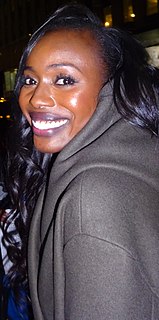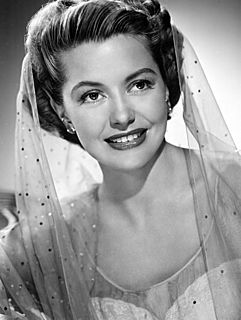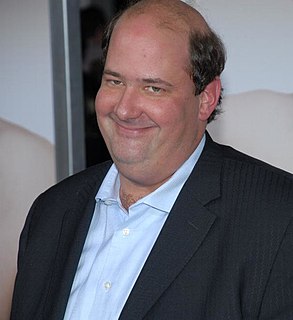A Quote by Anna Diop
Related Quotes
That shot in "Into the Inferno" somehow popped up while my editor and I were viewing the footage. I immediately said, "That looks like the opening shot because the camera approaches the action very slowly and we have enough time to insert some of the main credits into it." So it was a practical choice. At the same time, you see these tiny figures standing at the rim of something, and all of a sudden, the camera rises further and you find yourself looking straight down into an inferno.
I think where I've instinctively found myself is that I am somewhat guarded in my public life. Being interviewed or being photographed or just in public attention, I have a certain reserve. But when I'm working I feel like I'm very open. At least I like to believe that I feel like nothing is held back when I'm in front of a camera. That's my job.
Jack [Nicholson] really knows about the camera. He's one of the directors who likes to play with the camera. He'll change things around, play with lighting, things like that. He'll even spend hours on the set-up for an insert shot. He's an interested person who gets involved in all the aspects of the films he is making.
It helps so much being on location. It's like the difference between performing for the rectangle of the camera versus a world being created and then the camera finds things within that. There's a huge difference in that, because what it takes away is performance. You don't feel like performing. You're just kind of doing it. You're existing.
Being behind the camera you have control; you have the ability to make decisions for characters, for where the story line's going to go, how you want to put it out there, how you want to edit it. Acting is like where you paint on the canvas, and being behind the camera is like being either the paint or the paintbrush. They're both a part of the creative process, it's just that they have two different functions.
So in terms of a large part of the job on our show specifically, what makes the show complex and interesting and funnier are the conversations about "Where's the camera?" and "How aware are the characters of the camera? Are the cameras hidden for this shot? Is it a spy shot from far away? Or is it really close and in their face, and they sort of have to play to it in an embarrassing situation?" There's a whole other level of questions and choices that come into play on our show that are not even a factor in anything else.




































